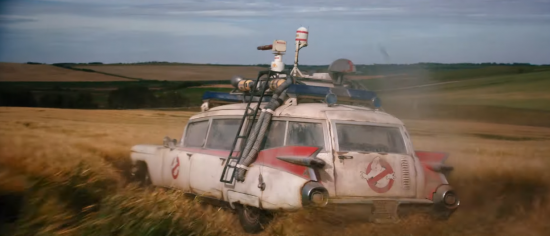Why Are Original Films So Few and Far Between?
Film lovers appreciate original films—movies that present brand-new characters, brand-new situations, and brand-new ideas to the masses. Yet in the past couple of decades, movie theaters seem packed with nothing but recycled ideas. There are sequels, prequels, and extended universes of similar movies. There are films based on basic formulas, revitalized with new actors or slightly different takes. There are remakes, reboots, and adaptations. But there aren’t as many new ideas coming out.
Why is this the case, and is there anything we can do about it?
Optimizing for Profitability
First, we need to understand that the film industry is an industry like any other, and it exists to make a profit. Films cost upwards of hundreds of millions of dollars, and studios have a vested interest in making that money back (and then some).
Accordingly, movie studios are inclined to invest money in the projects most likely to succeed, withholding money from risky or uncertain projects. Let’s say an executive has two scripts of similar merit on their desk; one of these features a familiar character, or is a reboot of a franchise that made lots of money in the past, while the other has completely untested characters and ideas. One represents a massive risk, while the other has a measurable chance of success. If it was your money on the line, which one would you choose to produce?
This effect is complicated in three ways:
- Studio dispositions. Not all studios are inclined to choose the surest bet. In fact, many smaller studios intentionally choose risky projects; they’ve become known for it. The trade-off is that riskier projects tend to have smaller budgets, and are released in a smaller number of theaters. Of course, this also means fewer people are seeing these movies, and they’re not advertised as heavily.
- Economic conditions. Economic conditions may also influence studio decision-making. During an economic recession, or if film-related revenue generation is declining, studios may be incentivized to take fewer risks. The past several years have been a practical economic boom, so this explanation is unlikely to account for the lack of original content.
- Positive reinforcement. When a studio backs a feature film that builds on an existing franchise or remakes a classic, and that film makes a profit, it serves as positive reinforcement. Every decision-maker who pushes for recycled ideas becomes validated, and therefore more likely to lean toward sure bets in the future.
What Counts as “Original”?
It’s easy to be jaded that movie studios are more interested in chasing profits than coming up with unique ideas, but we need to take a step back and reexamine what constitutes an “original” idea in the first place. For example, many critics and moviegoers rolled their eyes when Disney released a live-action remake of The Lion King in 2019. After all, the original version from 1994 was a masterpiece.
But even the 1994 version of The Lion King wasn’t necessarily a purely original film. Even in the 1990s, it attracted criticism from people who noted distinct similarities between the plot and animation of The Lion King and the much earlier Japanese anime, Kimba the White Lion. It also doesn’t take much analysis to figure out that many of the story elements of The Lion King (including the murderous, usurping uncle) come directly from Hamlet—a story ingrained in pop culture.
From a certain perspective, truly original ideas are much rarer than we’d like to believe, though of course, some ideas are more original than others.
Selection Bias
We should also keep in mind that our perspectives are also based on a number of biases. For example, big-budget movies built on existing franchises tend to be marketed much more heavily than small, risky, independent films; they also get more people talking about them because of the public’s existing familiarity. Accordingly, it’s only natural that you hear about these movies far more than you hear about more original projects.
If you’re the type of person who’s generally upset about the prevalence of unoriginal ideas, remakes, and so on, you’re also more likely to spot examples that reinforce your position. This is classic confirmation bias, and no one is exempt from it.
There are some very good reasons why original movies seem so rare in modern cinemas. For starters, most studios are incentivized to produce recycled materials—and consumers reinforce those decisions by continuing to buy tickets to these movies. But the seeming abundance of unoriginal ideas isn’t purely on the heads of profit-seeking executives; we can also blame a number of personal biases and public visibility for not seeing or noticing more original ideas in circulation.
This is a complex dilemma, and one worth considering further if you care about seeing riskier, less familiar films.











